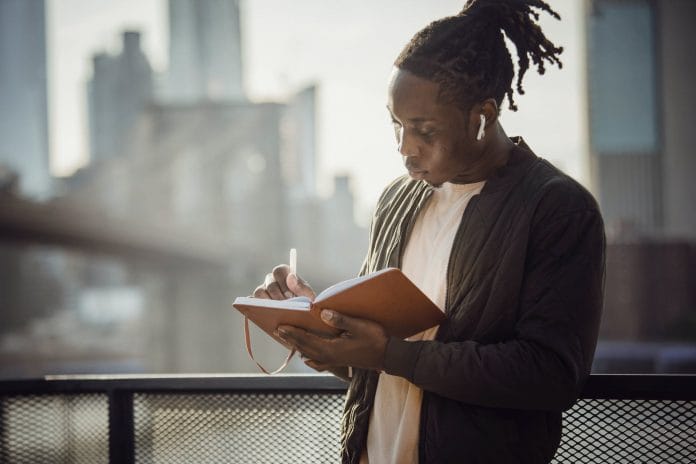Against a backdrop of rising tensions with the Soviets in 1959, President John F. Kennedy delivered a speech in New York that presented a new strategic approach toward African nations and U.S. global leadership in a world defined by great-power competition.
“Opening our universities and college doors to several times as many African students as now come over — this would be an investment which would be repaid to this country many times over in increased goodwill, trade and national security.”
Kennedy’s efforts spoke directly to U.S. national interests. Sixty years later, the Trump administration’s new plan to restrict Africans from educational opportunities in the U.S. works directly against American competitiveness and lasting geopolitical power.
The bipartisan commitment to support Africans who want to study in America has been a secret weapon in our competition with foreign adversaries, from the Soviet Union to China today.
Since 1950, the U.S. has welcomed an estimated 1.6 million African students to colleges and universities, and many have later risen to positions of prominence and power in their home countries, according to data from Open Doors, a research and advocacy group focusing on international students. Those students who chose to remain have contributed to the U.S. economy, innovative edge and cultural diversity.
In recent years, the U.S. has fallen behind China as the top destination for African students, and the Trump administration is contemplating a move that would further hobble America’s race for Africa’s sharpest minds.
At the end of September, the Department of Homeland Security introduced a set of draft rules for young Africans from 36 countries. Students from countries with a visa overstay rate of more than 10% would be limited to a two-year visa, with a possible two-year extension. That would inject uncertainty into the student visa process and almost certainly dissuade students from choosing to attend U.S. colleges and universities.
If implemented, the DHS policy would significantly undercut U.S. interests, weaken the U.S. economy, sour African and U.S. political relations and hurt the American brand at home and abroad.
International students contributed $41 billion to the U.S. economy in 2019, with African students contributing about $1.7 billion. This helps countless American companies, from a dorm room lamp bought at a Target store to a laptop from Apple to an Uber Eats delivery. Importantly, about 62% of international students receive the majority of their funds from sources outside of the U.S., such as family or home-country government assistance.
Furthermore, Open Doors found, three U.S. jobs are created for every seven international students, meaning African students supported more than 20,000 American jobs in 2019 alone. Nigeria, which would be hit with the proposed two-year visa limit, is ranked 11th for the number of students in the U.S. based on origin country, resulting in a larger economic impact than European countries including the U.K., Germany, and France.
Also read: US revoked over 1,000 Chinese visas over national security amid mounting tensions
Dissuading African students from choosing education in the U.S. will cost the economy while benefiting global competitors such as China, which has made scholarships to African students a cornerstone of its foreign policy toward the continent.
In 2014, China became the number one destination for English-speaking African students, surpassing both the U.S. and U.K. The rate at which China has increased the number of Africans studying within its borders is staggering: Between 2003 and 2015, the figure grew to more than 50,000 from less than 2,000. As of last year, it was 81,562, according to China’s Ministry of Education.
Keeping American universities open to African students is an essential mechanism for developing close relations with future African decision makers, serving as a foundation for shared experiences between American and African elites. While a U.S. education doesn’t mean future African leaders will agree with every U.S. policy, it undeniably deepens their understanding of the country, and it usually predisposes them to policy and business ties with the U.S.
More than 20 percent of current African leaders studied in the U.S., including the leaders of Cote d’Ivoire, Ethiopia, Ghana, Kenya and Somalia. Perhaps unsurprisingly, these countries represent some of our closest economic and security partners.
Beyond economics and politics, welcoming young Africans to the U.S. to study contributes to American vibrancy and global appeal. The 2018-2019 season of the National Basketball Association featured 13 Africans who studied in the U.S. The vast majority of players from 18 African countries represented in the National Football League played college football in the U.S. After coming to the U.S. to study in Alabama, Nigerian Afropop singer David Adeleke, known as Davido, recently announced a collaboration with Nicki Minaj. Nigerian author Chimamanda Ngozi Adichie wrote about her experiences at Drexel University in Philadelphia in her third novel, Americanah. Oscar-winning acress Lupita Nyong’o studied at Yale University before starring in “Black Panther,” which earned Marvel Studios $1.3 billion worldwide.
DHS’s draft rules, which are open for public comment through Oct. 25, would potentially prevent a few thousand African students from overstaying their visas, at the cost of losing tens of thousands of African students each year. Kennedy tapped his family’s foundation to cover much of the cost of transportation and living expenses for hundreds of African students to study in the U.S. — including many of the leaders of African independence movements and inspiring the father of President Barack Obama to study at the University of Hawaii.
A recognition and return to JFK’s vision would better support America now and in the years ahead, as Kennedy explained in 1959 at Wesleyan University: “After all, it was in our schools that some of the most renowned African leaders learned the virtues of representative government, widespread education, and economic opportunity.”
Also read: Racial unrest impedes US bid to counter China in Africa






